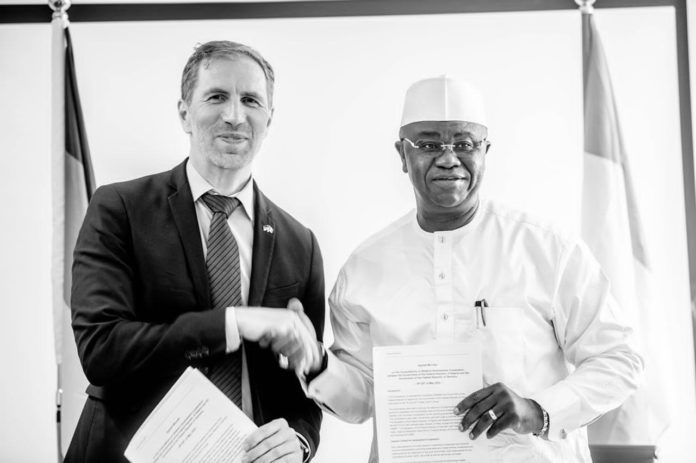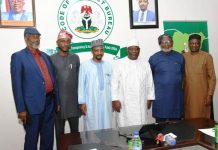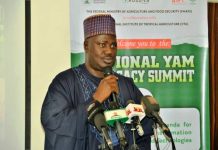
The Governments of the Federal Republic of Nigeria and Germany recently, in Abuja, held sectoral dialogues which focused on economic cooperation between each other with Nigeria particularly positioned to benefit more from the cooperation.
Performing the signing of the agreed minutes of the Bilateral consultations between the Governments on behalf of the Nigerian Government, Minister of State, Budget and National Planning, Prince Clem Ikanade Agba, while delivering his remarks, expressed appreciation to the Government of Germany for its support and commitment towards the advancement of Nigeria’s economic growth and development.
Prince Agba said that the commitment came at a time the National Development Plan (2021-2025) was done.
According to him: “Recall that this plan was expiring; unfortunately, when the world was confronted with Covid-19 and as a response to that, the government delayed the NDP and came up with an Economic Sustainability Plan (ESP) as a response to Covid-19 both on the health and economic sides of things.”
He said that the NDP was an inclusive and participatory national document, which would ensure that all 36 states, the FCT and the 774 Local Governments in the country were part of it.
The Minister explained that the plan had 3 volumes which were policies/programmes; projects costed and prioritized as well as legislative imperatives, and that it required the sum of N350 trillion in 5 years to build infrastructures of which the organized private sector is expected to fund tje plan at 86% (N300) trillion and the government, the balance of 14%.
He noted that the decision was made to enable the private sector thrive.
According to him, “we have 7 clusters that we looked at namely: Economic Growth and Development; Infrastructure; Public Administration (Public Sector Reform); Human Capital Development, the others are Social Development, Regional Development and Plan Implementation, Communication, Financing, Monitoring and Evaluation.”
Agba was delighted to note that the five priority areas of the German Federal Ministry of Economic Cooperation and Development (BMZ) 2030 Reform Strategy which were discussed during the consultative meeting, comprising the sustainable economic development; climate and energy; life without hunger; health, social protection and population policy; and crises prevention and peace building, aligned with the NDP 2021-2025.
He further noted that the key outcomes that established the major components of the Agreed Minutes signed, some of which were: (i) that the development support from the German Government should continue to be aligned closely with development priorities in Nigeria’s National Development Plan (2021-2025), (ii) that the German Government would continue to support a sustainable and inclusive economic development, (iii) that sustainable and climate friendly investment would be accorded top priority; among others.
Head of Department, West Africa II, Federal Ministry of economic Cooperation and Development, Germany, Lars Wilke, pointed out that the objective of the joint cooperation remained to contribute to an inclusive and green economic development that led to job creation especially for women and youths, adding that their core portfolio in the country amounted to 600 billion Euros in total considering all the implemented projects.
Wilke said that the priority areas of the Nigerian German Development Cooperation agreed upon during the consultations were: sustainable economic development; training and employment; investing in vocational education and training; skills development as well as climate and financial sector development.
He stated that the basis of the corporation for them was also the National Development Plan which aligned very much with their priorities, and further assured of Germany’s intention to be a key partner in the delegation.
In her opening remarks, the Permanent Secretary, Budget and National Planning, Mrs Olusola Idowu, expressed appreciation to the Minister of State Budget and National Planning, whom she described as energetic and hardworking as his presence underscored the importance attached to the meeting held and to the existing cordial Nigerian-German economic cooperation, which dates back to 1960.
She also appreciated the commitment of the German delegation towards the success of the consultations held, as she looked forward to the deepening of the relationship between the countries.
Imaobong Udoh
D/Information (BNP)





